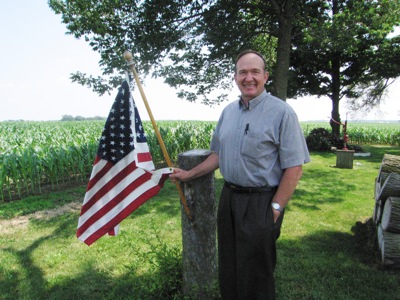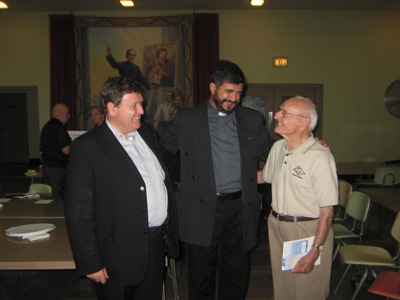Friday, September 8th, 2006
West Bank walkway legal hearing delayed
Council members question how bond validation hearing would be paid for
By William Kincaid
Celina City Council delayed a decision on whether to hold a bond validation hearing on the legality of its plans to build a lakefront walkway along West Bank Road.
During a special council of the whole meeting Thursday, councilors moved any action to Monday's regular meeting after some councilors questioned how to pay for such a hearing. Councilors will consider the proposal as an emergency ordinance at that time.
City officials proposed a public bond validation hearing to be held in Mercer County Common Pleas Court, which they hope will clear up lingering legal concerns among some residents and prove the city has the right to borrow against a tax increment finance (TIF) district to pay for the project.
Community Development Consultant Kent Bryan told council members that filing a bond validation action is necessary to ensure the legality of the process and to secure the issuing of revenue bonds.
"We don't think we made a mistake, but maybe we did," Bryan said, adding that the courts would review the project and determine that everything is legal.
Bryan also said potential investors would feel more secure if the proper legal review is taken. Bond buyers, Bryan said, would have more confidence, since there would be less risk. He added that the process would also give the city better interest rates.
A court decision in the city's favor also would permanently block any court action aimed at blocking or interrupting the proposed walkway project. However, the court's decision could be appealed to a higher court.
Bryan said if the bond validation hearing is requested, the county clerk would place a legal notice in the paper in advance, allowing all Celina tax payers to respond with any complaints.
Councilman Rick Bachelor said he was concerned with the possible costs associated with the filing, as Assistant City Law Director Angela Nickell said there would be unspecified service and attorney costs.
"So this is not a freebie?" Bachelor asked. "We're going to file an action without setting aside any fees?"
Bachelor said he would like to have some kind of figure before voting upon the action. He questioned, "Where are the funds going to come from? ... There are going to be costs and we need to (identify those)."
Bryan said those attorney fees could possibly be funded through the Grand Lake TIF, as "things are usually paid through those kinds of issues."
Councilman Chris Mohler said he was concerned about the timeliness of the hearing, as council has talked about it for nearly four years now.
"Is the boardwalk a primary goal of the administration?" Mohler asked, to which he received an immediate, emphatic "yes" from one city official. "It just seems to me we talked about this a long time ago ... I understand why we're doing it ... I'm just disappointed."
Nickell said that each complaint filed with the 28-day notice could take 28 days to six months for the judge to review, depending on the issues raised. But if there are no complaints filed, she said a ruling could be made within 60 days.
Council President Bill Sell said council is paying its attorneys good money and is now forced to pay even more just to ensure the decisions are legal. He also asked if there were any guarantees from their attorneys that the process is indeed legal.
Bryan said, in the attorneys' opinion, it is legal.
The proposed mile-long path would run from the lighthouse near Lake Shore Drive to near the state boat ramp to the south. A 20-foot wide swath of the lake would be filled in to make room for the concrete path. Construction estimates currently stand at about $2 million, although some fear that rising oil and fuel prices will ultimately push the price tag even higher.



